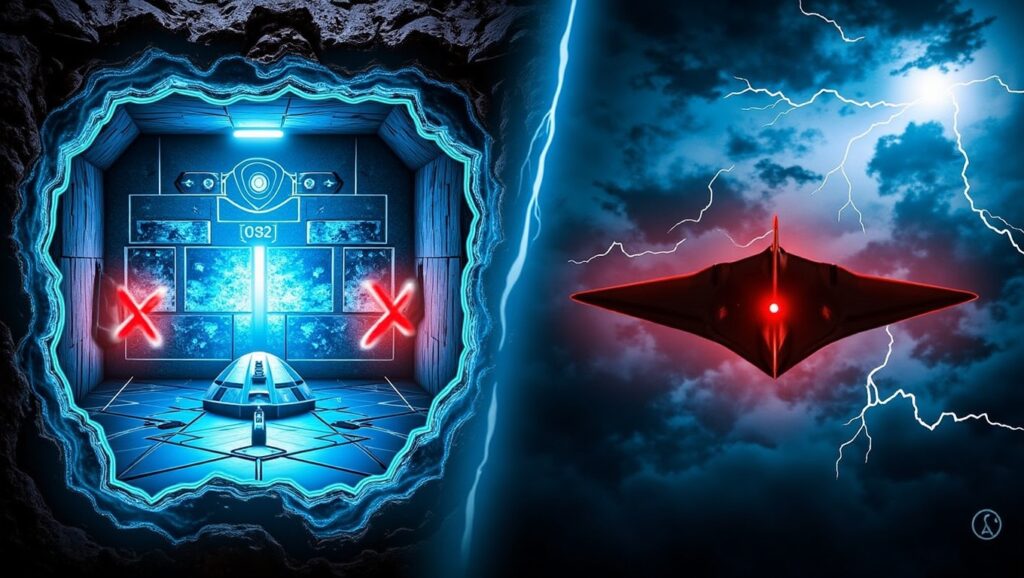Pentagon Declares ‘Total Success’ in Iran Nuclear Strikes as Leaked Report Sparks Fierce Debate

seed=876178359
WASHINGTON D.C. – The Pentagon is staunchly defending a major military operation against Iran, with top officials declaring last weekend’s air strikes on Iranian nuclear facilities a “historically successful” mission that has “obliterated” Tehran’s capacity to build a nuclear weapon. The forceful declaration comes amid a swirling controversy fueled by a leaked preliminary intelligence assessment suggesting the strikes were far less effective than the administration is publicly claiming.
The high-stakes narrative battle pitches the White House’s depiction of a decisive military victory against conflicting intelligence, raising critical questions about the true state of Iran’s nuclear program and the stability of the Middle East. The outcome of this information war could have significant implications for international security, US credibility, and the potential for further escalation in the region.
A “Spectacular Military Success”
In a heated Pentagon briefing Thursday, Secretary of Defense Pete Hegseth provided a robust defense of the operation, stating unequivocally that the strikes “decimated and obliterated” key Iranian capabilities.
“I can report to the world that the strikes were a spectacular military success,” Hegseth told reporters. “Iran’s key nuclear enrichment facilities have been completely and totally obliterated.”
Echoing this assessment, Chairman of the Joint Chiefs of Staff, General Dan Caine, provided technical details of the assault, codenamed “Operation Midnight Hammer.” According to Caine, B-2 stealth bombers conducted a grueling 37-hour mission to drop fourteen 30,000-pound GBU-57 Massive Ordnance Penetrators on hardened targets. The heavily fortified underground Fordow Fuel Enrichment Plant was a primary focus, with planners from the Defense Threat Reduction Agency (DTRA) reportedly having spent 15 years developing attack strategies for the site.
The White House versus The Leak
The administration’s triumphant narrative was almost immediately challenged by a leaked Defense Intelligence Agency (DIA) report. The preliminary assessment, which quickly spread through the press, concluded the US Iran nuclear strikes likely only set the program back by three to six months and failed to destroy the most critical underground components.
The White House has launched an aggressive counter-offensive. President Donald Trump dismissed the reports as “fake news” from the “radical left media” and called the B-2 pilots “Patriots.” An FBI investigation has reportedly been launched to identify and prosecute the source of the leak.
“The unauthorized release of this classified information is a criminal act that serves only to undermine a successful military operation and aid the Iranian regime,” Secretary Hegseth stated.
Furthering the administration’s case, CIA Director John Ratcliffe and Director of National Intelligence Tulsi Gabbard issued a joint statement citing “new intelligence from a historically reliable source” that they claim confirms the Iranian facilities will take years to rebuild.
International Alarm and Iran’s Respons
Internationally, the strikes and subsequent war of words have been met with alarm. European Union leaders have called for de-escalation and a return to diplomacy. The UN’s nuclear watchdog, the International Atomic Energy Agency (IAEA), faces a potential crisis; the agency previously reported it could no longer account for 400kg of Iran’s 60% enriched uranium and may now be completely cut off, as Tehran is advancing a bill to end all international inspections.
Iran’s own response has been contradictory. Supreme Leader Ayatollah Ali Khamenei delivered a defiant speech, claiming the US “failed to achieve anything significant” and that Iran had delivered a “heavy slap” in a retaliatory strike. However, his foreign ministry spokesman, Ismail Baghaei, later admitted to Al Jazeera that the nuclear facilities were “badly damaged,” leaving the true extent of their operational capacity uncertain.
With verifiable facts scarce and both sides engaged in a high-stakes information campaign, the international community is left to grapple with the fallout of the most significant military confrontation in the region in years.





